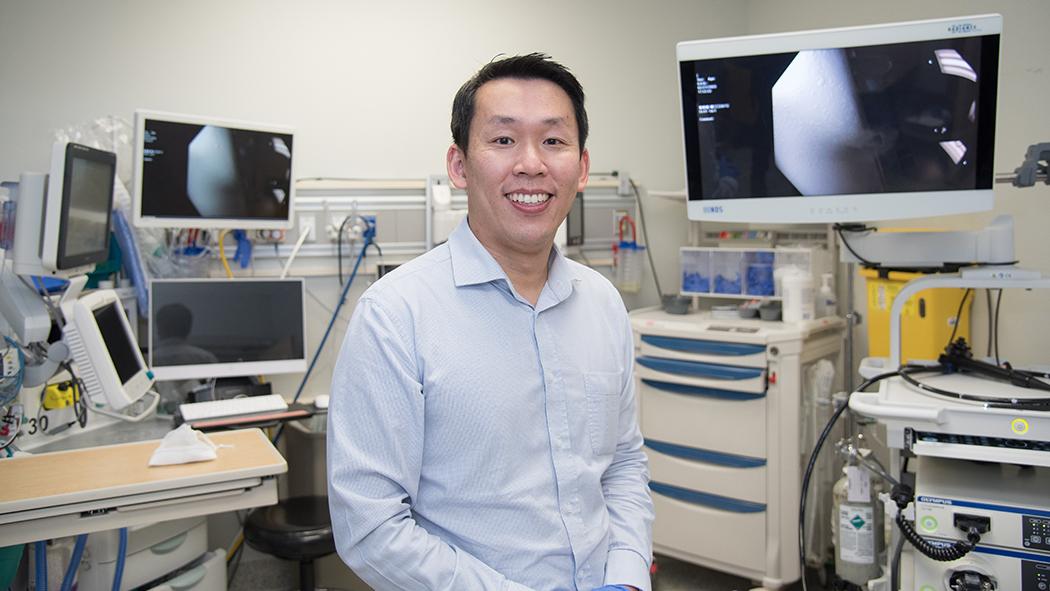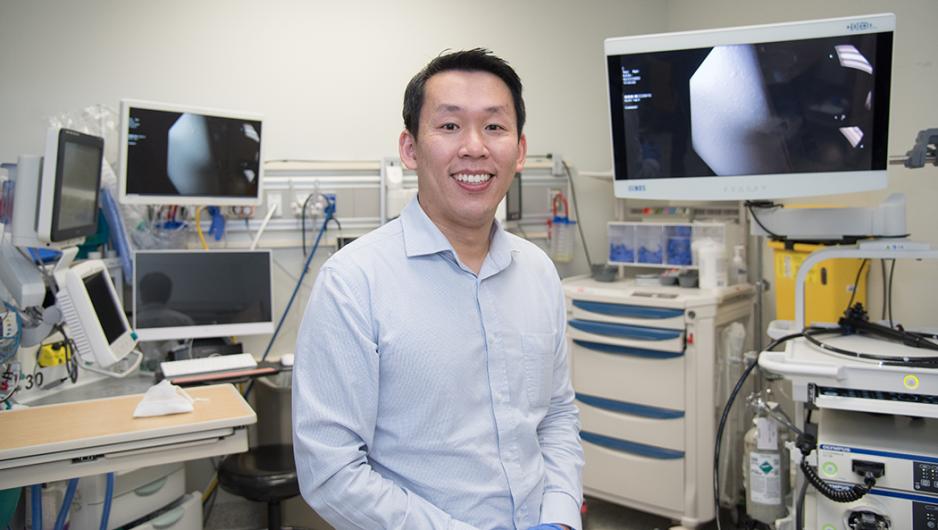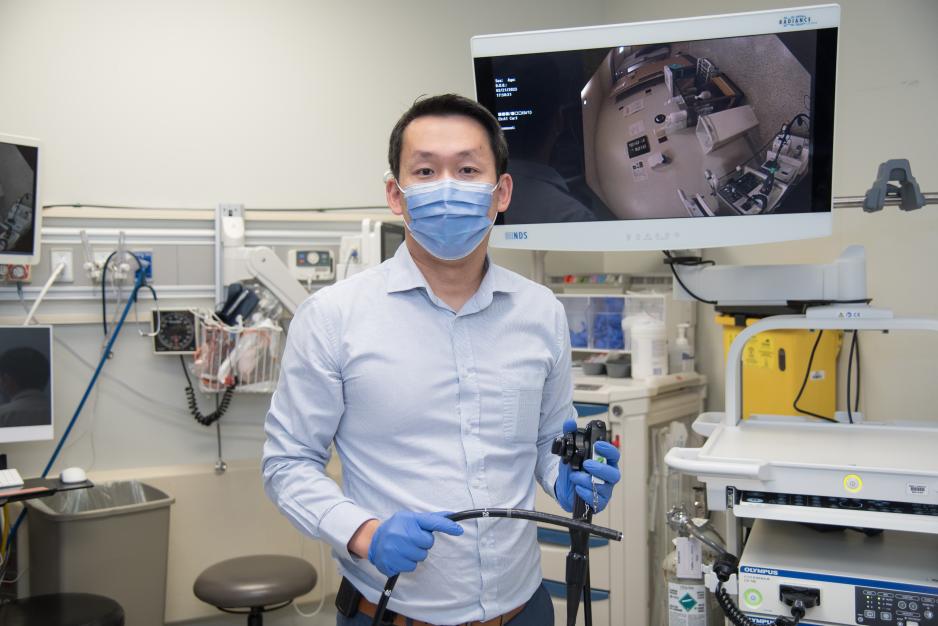
March 1, 2023
March is Colorectal Cancer Awareness Month. In Ontario, colon cancer is the second most common cause of cancer related death. Getting a FIT (fecal immunochemical test) starting at age 50 can reduce your risk of colon cancer. Testing is critical for early detection and treatment.
“Individuals aged 50 – 74 with no first-degree relative (parent, sibling, child) with colon cancer are at average risk for colon cancer and should be screened with the FIT test every 2 years”, Dr. Michael Sey, Regional Endoscopy and Colon Cancer Screening Lead, says. “The average lifetime risk of developing colon cancer is about six per cent and you are at risk even if you don’t have a family history of colon cancer”, explains Dr. Sey, who is also an Associate Professor of Medicine at Western University and Scientist at Lawson Health Research Institute.
If you have a family history, the recommendations for screening differ. If you have a first degree relative who had colon cancer, then a colonoscopy may be a better test. This would also apply to individuals with inflammatory bowel disease, genetic syndromes that predispose to colon cancer, or having complex polyps in the past. In these circumstances, it is best to check with your doctor about which test is right for you.
Signs and symptoms
Some of the associated symptoms of colon cancer can include:
- Blood in the stool
- Change in bowel habits
- Losing weight for no reason
- Abdominal pain
However, many people will not experience any symptoms, especially at the early stages of colon cancer. “This is why screening asymptomatic people is so important. In fact, if you have symptoms, you should not get a FIT test as it was not designed for that”, Dr. Sey notes. If you are experiencing symptoms, please discuss with your primary care provider.
What is the FIT?
The fecal immunochemical test (FIT) has been used to screen for colon cancer in Ontario since 2018. It is an antibody test that effectively detects microscopic amounts of blood in the stool. It detects blood in the stool before we can see it with the naked eye.
“It is an easy, painless test that you can do in privacy of your own home,” Dr. Sey says. “The test is delivered directly to your home and you can either drop the sample off at your local Life Lab or mail the sample back using the pre-paid envelope you receive when the test kit is mailed to you.”
Once you get the FIT kit, there are simple instructions that help guide you through the process, and everything you need to complete the test is provided to you free of charge.
How to get a FIT?
The easiest way is to speak with your family doctor or nurse practitioner about getting checked for colon cancer with FIT.
If you do not have a primary care provider, you can call Health811 (formerly Health Connect Ontario and TeleHealth) by dialing 811 to get a FIT sent to your home.
If you would like to learn more about where to get screened or receive a test, please visit Cancer Care Ontario’s webpage on Screening for Colorectal Cancer.

